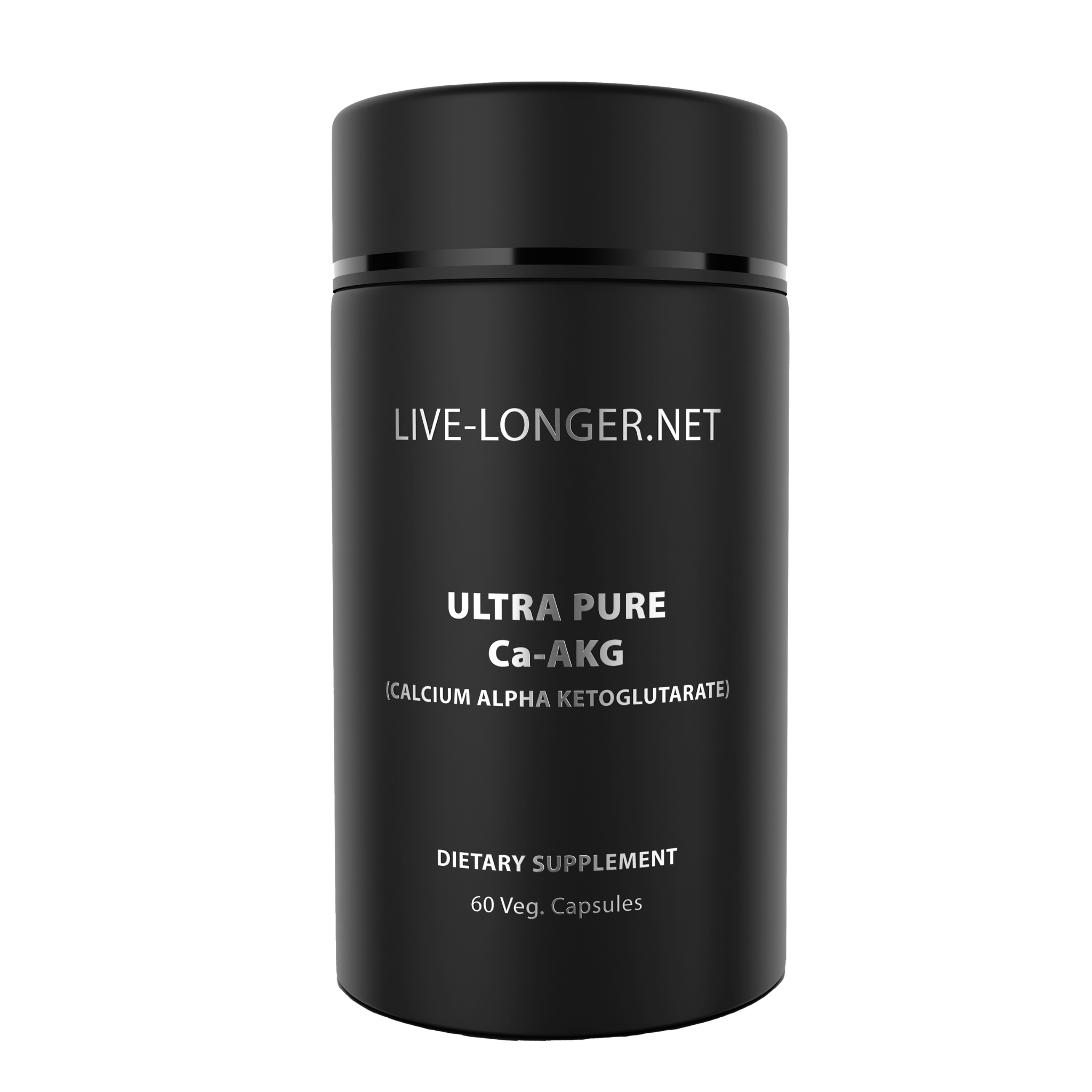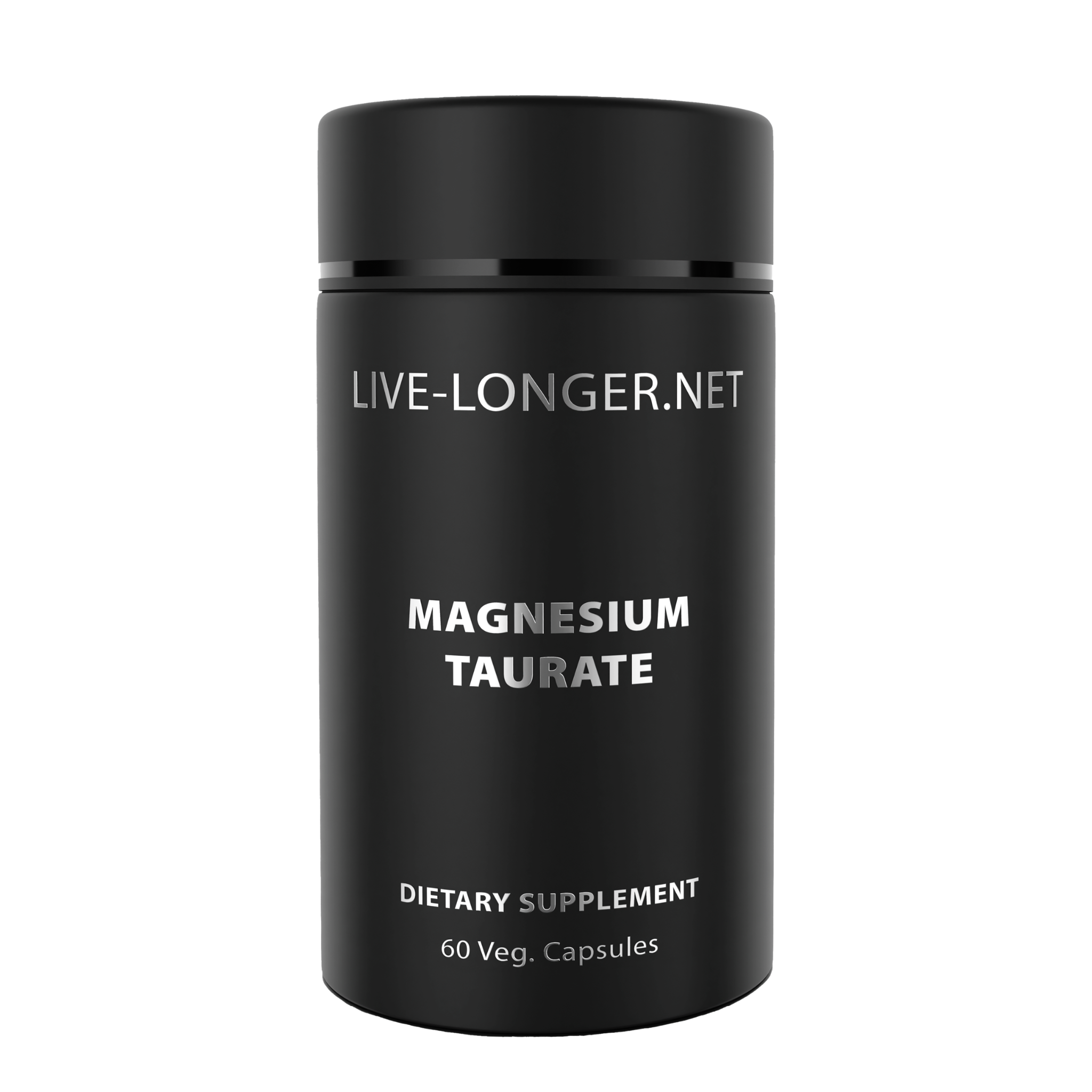If you're tossing and turning every night, desperate for better sleep, you're not alone! In a world that glorifies "hustle culture," sleep often takes a back seat, but it's one of the most important pillars of our health. Whether it's too much screen time, a hectic work schedule, or even stress, getting a good night's sleep seems quite elusive.
In this article, we'll explore how sleep is crucial for your health, what commonly disrupts your sleep, and which supplements can help you sleep better. From magnesium to melatonin, we'll break down the science so you can rest easy knowing you've got the right tools for a restful night.
Why Sleep Matters for Health?
When you get proper rest, your body does everything from repairing muscles and tissues to strengthening your immune system. On the flip side, poor sleep can lead to a host of problems, from irritability to more serious health issues like high blood pressure, weight gain, and even a weakened immune response (1).
A study published in Neuroscience found that poor sleep quality is linked to reduced cognitive performance (2), meaning you'll not only be more forgetful but might even struggle to focus. Have you ever tried solving a math problem after a sleepless night? It's not easy, and you probably know that already.
In terms of physical health, consistent, restful sleep helps the body maintain a healthy balance of hormones, particularly those regulating appetite and stress. Sleep deprivation can cause an increase in ghrelin (the hormone that makes you feel hungry) and a decrease in leptin (the hormone that makes you feel full), which can lead to overeating and weight gain (3).
To keep your brain sharp, emotions stable, and body functioning properly, sleep is non-negotiable. And here's where the best supplements for sleep come into play—they can be just the helping hand you need to get the rest you deserve.
Common Causes of Poor Sleep
Before you start reaching for supplements, let's first tackle what might be keeping you up at night.
Stress
Whether it's worrying about work, relationships, or even a missed deadline, stress activates the body's fight-or-flight response, releasing cortisol—the stress hormone (4). It's no wonder falling asleep can feel impossible when your brain is working under too much pressure.
Technology & Modern Lifestyle
Blue light emitted from screens suppresses melatonin production—the hormone that tells your body it's time to sleep (5). Poor diet also plays a role. Too much caffeine, sugar, or heavy meals close to bedtime can mess with your ability to fall asleep or stay asleep.
Irregular sleep schedules
If you go to bed at 10 p.m. one night and 2 a.m. the next, your body doesn't know when it's supposed to shut down. Consistency is key to maintaining healthy sleep patterns.
The good news? Addressing these sleep disruptors combined with the best supplements for sleep can make a world of difference for your nightly rest.
Best Supplement for Better Sleep
Now that we know why sleep is so essential and what might be keeping you from getting it, let's talk about the best supplements for sleep.
Magnesium
Magnesium plays a role in over 300 biochemical processes, including regulating the nervous system (6). Studies have shown that magnesium can help relax muscles, reduce anxiety, and improve sleep quality. A study published in the Journal of Research in Medical Sciences found that magnesium supplementation improved sleep time and efficiency and reduced insomnia severity in elderly participants (7).
Magnesium is often recommended for people with sleep disorders or anyone who struggles with staying asleep. It can help regulate the neurotransmitters that promote sleep, such as GABA (Gamma-aminobutyric acid) (8), which leads us to our next supplement.
GABA
GABA is a neurotransmitter that calms the nervous system, helping you wind down and prepare for sleep. While our bodies produce GABA naturally, supplements can provide a little extra support.
Studies have found that GABA supplementation can reduce the time it takes to fall asleep and increase the duration of deep sleep (9). Plus, it has the added benefit of reducing anxiety, making it a two-for-one deal for better sleep.
Melatonin
Melatonin is the hormone that tells your body it's time for bed. Unlike other sleep aids, melatonin works with your body's natural rhythms. A meta-analysis published in PLOS One found that melatonin supplements reduced the time it takes to fall asleep and increased total sleep time, particularly for those suffering from insomnia or jet lag (10). It's great for resetting your internal clock if you're travelling or simply trying to establish a more consistent sleep schedule.
L-Theanine
L-Theanine is an amino acid commonly found in green tea. While it doesn't make you sleepy, it promotes relaxation and reduces stress without sedating you.
A study in Nutrients found that L-theanine improves sleep quality by relaxing the mind and body (11), which can be particularly helpful if your sleeplessness is due to stress or anxiety.
These supplements can be helpful tools in your journey to better sleep, but as with any supplement, consistency is key. Take them regularly, and you'll be well on your way to catching those Z's. And remember, the best supplements for sleep are meant to complement healthy sleep habits—not replace them.
How Supplements Help Achieve Better Sleep
Supplements aren't magic pills, but they do work in connection with your body's natural processes to improve sleep. For example, when you take magnesium or melatonin, you're not overriding your system—you're supporting it. Magnesium, for instance, helps calm the nervous system by regulating neurotransmitters like GABA, which promote relaxation.
Melatonin, on the other hand, works by syncing with your body's circadian rhythm, your internal clock. When it's dark outside, melatonin levels naturally rise, telling your brain it's time for bed. Supplementing with melatonin can be especially helpful if your schedule is out of whack or if you're struggling with jet lag.
In essence, supplements work to optimize your body's natural sleep mechanisms, helping you achieve that elusive deep, restorative sleep we all crave.
Natural Ways to Improve Sleep
Supplements are great, but let's not forget the basics. There are plenty of natural, lifestyle-based ways to improve your sleep. The best part is that you can think of these changes as your foundation, while the best supplements for sleep are the icing on the cake.
Sleep Routines
Your body thrives on consistency, so try to go to bed and wake up at the same time every day—even on weekends. Irregular sleep schedules can confuse your body's internal clock, making it harder to fall asleep when you want to.
Sleep Environment
Your bedroom should be cool, quiet, and dark, almost like a bat cave. Optimizing your sleep environment can significantly improve sleep quality. Consider blackout curtains, a fan for white noise, or even a sleep mask to block out light.
Avoid Screen Time Before Bed
Remember, blue light suppresses melatonin, so scrolling through social media right before bed is like distracting your brain. Instead, try relaxing activities like reading or meditating.
Relaxation Techniques
Breathing exercises, progressive muscle relaxation, and even yoga can help reduce stress and signal to your body that it's time to wind down. Pair these natural methods with the best supplements for sleep, and you'll have the ultimate sleep strategy on your hands.
The Bottom Line
There's no question about it: sleep is essential for your health, mood, and overall well-being. Whether you're struggling with occasional insomnia or simply looking to optimize your rest, incorporating the best supplements for sleep can make a significant difference. These are all powerful tools that can help you sleep better, longer, and more deeply.
However, as we've learned, supplements are only part of the equation. Pairing them with healthy sleep habits—like maintaining a consistent schedule, creating a relaxing bedtime routine, and optimizing your sleep environment—will give you the best shot at waking up refreshed and ready to conquer the day.
As with anything related to your health, it's always wise to consult with a healthcare professional before starting any new supplement regimen. But with the right combination of supplements and lifestyle changes, you'll be well on your way to finally saying goodbye to sleepless nights.
References
- Colten HR, Altevogt BM. Extent and health consequences of chronic sleep loss and sleep disorders [Internet]. nih.gov. National Academies Press (US); 2006. Available from: https://www.ncbi.nlm.nih.gov/books/NBK19961/
- Khan M, Al-Jahdali H. The consequences of sleep deprivation on cognitive performance. King Abdullah International Medical Research Center [Internet]. 2023 Apr 28;28(2):91–9. Available from: https://nsj.org.sa/content/nsj/28/2/91.full.pdf
- SCHMID SM, HALLSCHMID M, JAUCH-CHARA K, BORN J, SCHULTES B. A single night of sleep deprivation increases ghrelin levels and feelings of hunger in normal-weight healthy men. Journal of Sleep Research [Internet]. 2008 Sep;17(3):331–4. Available from: https://onlinelibrary.wiley.com/doi/full/10.1111/j.1365-2869.2008.00662.x
- Chu B, Marwaha K, Ayers D, Sanvictores T. Physiology, stress reaction [Internet]. PubMed. Treasure Island (FL): StatPearls Publishing; 2024. Available from: https://www.ncbi.nlm.nih.gov/books/NBK541120/
- Silvani MI, Werder R, Perret C. The influence of blue light on sleep, performance and wellbeing in young adults: A systematic review. Frontiers in Physiology [Internet]. 2022 Aug 16;13(943108). Available from: https://www.ncbi.nlm.nih.gov/pmc/articles/PMC9424753/
- National Institutes of Health. Office of Dietary Supplements - Magnesium [Internet]. National Institutes of Health. 2022. Available from: https://ods.od.nih.gov/factsheets/Magnesium-HealthProfessional/
- Abbasi B, Masud Kimiagar, Khosro Sadeghniiat, Shirazi MM, Hedayati M, Bahram Rashidkhani. The effect of magnesium supplementation on primary insomnia in elderly: A double-blind placebo-controlled clinical trial. Journal of Research in Medical Sciences : The Official Journal of Isfahan University of Medical Sciences [Internet]. 2012 Dec [cited 2024 Oct 18];17(12):1161. Available from: https://pmc.ncbi.nlm.nih.gov/articles/PMC3703169/
- Papadopol V, Nechifor M. Magnesium in neuroses and neuroticism [Internet]. Vink R, Nechifor M, editors. PubMed. Adelaide (AU): University of Adelaide Press; 2011. Available from: https://www.ncbi.nlm.nih.gov/books/NBK507254/
- Hepsomali P, Groeger JA, Nishihira J, Scholey A. Effects of Oral Gamma-Aminobutyric Acid (GABA) Administration on Stress and Sleep in Humans: A Systematic Review. Frontiers in Neuroscience [Internet]. 2020 Sep 17 [cited 2024 Oct 18];14. Available from: https://pmc.ncbi.nlm.nih.gov/articles/PMC7527439/
- Ferracioli-Oda E, Qawasmi A, Bloch MH. Meta-Analysis: Melatonin for the Treatment of Primary Sleep Disorders. Romanovsky AA, editor. PLoS ONE [Internet]. 2013 May 17;8(5):e63773. Available from: https://journals.plos.org/plosone/article?id=10.1371/journal.pone.0063773
- Popa-Wagner A, Agar E, Kilic E, Mf D, Mc B, Sp O, et al. Citation: A Novel Theanine Complex, Mg-L-Theanine Improves Sleep Quality via Regulating Brain Electrochemical Activity. 2022; Available from: https://www.ncbi.nlm.nih.gov/pmc/articles/PMC9017334/pdf/fnut-09-874254.pdf









